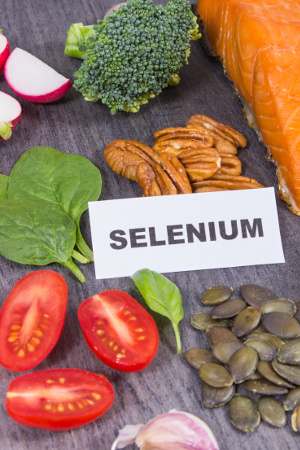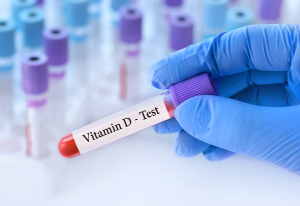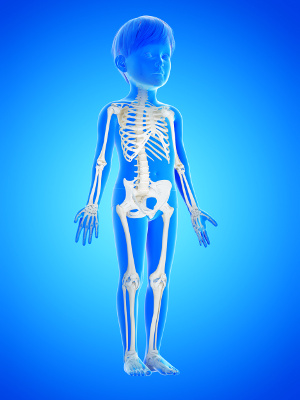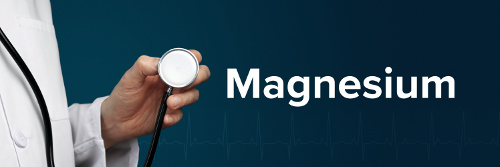afterLoad (456.3KB) (4.98ms)
afterInitialise (1.27MB) (61.81ms)
afterRoute (861.31KB) (30.81ms)
beforeRenderComponent com_content (35.61KB) (357μs)
Before Access::preloadComponents (all components) (69.88KB) (8.44ms)
After Access::preloadComponents (all components) (98.07KB) (11.25ms)
Before Access::preloadPermissions (com_content) (1.6KB) (22μs)
After Access::preloadPermissions (com_content) (3.29MB) (26.65ms)
Before Access::getAssetRules (id:62 name:com_content.category.20) (130.65KB) (6.07ms)
After Access::getAssetRules (id:62 name:com_content.category.20) (7.38KB) (94μs)
Before Access::getAssetRules (id:8 name:com_content) (51.77KB) (96.72ms)
After Access::getAssetRules (id:8 name:com_content) (6.17KB) (42μs)
afterRenderComponent com_content (1.36MB) (462ms)
afterDispatch (32.63KB) (4.47ms)
beforeRenderRawModule mod_articles_category (READ MORE...) (350.71KB) (26.75ms)
afterRenderRawModule mod_articles_category (READ MORE...) (84.63KB) (298ms)
beforeRenderRawModule mod_tags_popular (Search) (4.81KB) (37μs)
afterRenderRawModule mod_tags_popular (Search) (6.68KB) (169ms)
beforeRenderRawModule mod_custom (BOOST YOUR IMMUNE DEFENSE) (960B) (35μs)
afterRenderRawModule mod_custom (BOOST YOUR IMMUNE DEFENSE) (4.2KB) (794μs)
beforeRenderRawModule mod_custom (Are you taking supplements) (736B) (20μs)
afterRenderRawModule mod_custom (Are you taking supplements) (1.03KB) (29μs)
beforeRenderRawModule mod_articles_category (Get additionel and more detailed knowledge about) (8.41KB) (23μs)
afterRenderRawModule mod_articles_category (Get additionel and more detailed knowledge about) (44.39KB) (18.73ms)
beforeRenderRawModule mod_custom (Antiaging) (6.97KB) (46μs)
afterRenderRawModule mod_custom (Antiaging) (1KB) (99μs)
beforeRenderRawModule mod_custom (Exercise) (720B) (13μs)
afterRenderRawModule mod_custom (Exercise) (1.02KB) (24μs)
beforeRenderRawModule mod_custom (Check this before you buy a Q10 product) (752B) (10μs)
afterRenderRawModule mod_custom (Check this before you buy a Q10 product) (944B) (21μs)
beforeRenderModule mod_articles_category (READ MORE...) (267.89KB) (12.82ms)
afterRenderModule mod_articles_category (READ MORE...) (1.25KB) (97μs)
beforeRenderModule mod_tags_popular (Search) (5.17KB) (16μs)
afterRenderModule mod_tags_popular (Search) (2.52KB) (26μs)
beforeRenderModule mod_custom (BOOST YOUR IMMUNE DEFENSE) (1.31KB) (12μs)
afterRenderModule mod_custom (BOOST YOUR IMMUNE DEFENSE) (1.28KB) (22μs)
beforeRenderModule mod_custom (Are you taking supplements) (352B) (10μs)
afterRenderModule mod_custom (Are you taking supplements) (1.28KB) (21μs)
beforeRenderModule mod_articles_category (Get additionel and more detailed knowledge about) (8.03KB) (16μs)
afterRenderModule mod_articles_category (Get additionel and more detailed knowledge about) (1.31KB) (20μs)
beforeRenderModule mod_custom (Antiaging) (7.33KB) (10μs)
afterRenderModule mod_custom (Antiaging) (1.27KB) (20μs)
beforeRenderModule mod_custom (Exercise) (336B) (9μs)
afterRenderModule mod_custom (Exercise) (1.25KB) (19μs)
beforeRenderModule mod_custom (Check this before you buy a Q10 product) (352B) (10μs)
afterRenderModule mod_custom (Check this before you buy a Q10 product) (1.28KB) (19μs)
beforeRenderRawModule mod_menu (Main menu-US) (28.53KB) (5.68ms)
afterRenderRawModule mod_menu (Main menu-US) (157.05KB) (7.79ms)
beforeRenderModule mod_menu (Main menu-US) (720B) (7μs)
afterRenderModule mod_menu (Main menu-US) (4.36KB) (70μs)
beforeRenderRawModule mod_languages (Sprogskift) (3.44KB) (19μs)
afterRenderRawModule mod_languages (Sprogskift) (29.88KB) (10.56ms)
beforeRenderModule mod_languages (Sprogskift) (720B) (8μs)
afterRenderModule mod_languages (Sprogskift) (5.31KB) (26μs)
beforeRenderRawModule mod_finder () (6.34KB) (14μs)
afterRenderRawModule mod_finder () (218.54KB) (17.33ms)
beforeRenderModule mod_finder () (704B) (7μs)
afterRenderModule mod_finder () (3.29KB) (62μs)
beforeRenderRawModule mod_custom () (6.62KB) (196μs)
afterRenderRawModule mod_custom () (26.52KB) (7.43ms)
beforeRenderModule mod_custom () (704B) (8μs)
afterRenderModule mod_custom () (1.23KB) (66μs)
beforeRenderRawModule mod_menu (Main menu-US) (5.07KB) (173μs)
afterRenderRawModule mod_menu (Main menu-US) (5.8KB) (1.74ms)
beforeRenderModule mod_menu (Main menu-US) (720B) (7μs)
afterRenderModule mod_menu (Main menu-US) (3.75KB) (66μs)
beforeRenderRawModule mod_languages (Sprogskift Mobil) (912B) (25μs)
afterRenderRawModule mod_languages (Sprogskift Mobil) (3.89KB) (3.54ms)
beforeRenderModule mod_languages (Sprogskift Mobil) (720B) (14μs)
afterRenderModule mod_languages (Sprogskift Mobil) (1.27KB) (46μs)
beforeRenderRawModule mod_finder () (2.3KB) (15μs)
afterRenderRawModule mod_finder () (6.29KB) (5ms)
beforeRenderModule mod_finder () (704B) (5μs)
afterRenderModule mod_finder () (1.23KB) (70μs)
beforeRenderRawModule mod_custom () (8.66KB) (1.86ms)
afterRenderRawModule mod_custom () (904B) (206μs)
beforeRenderModule mod_custom () (704B) (4μs)
afterRenderModule mod_custom () (2.43KB) (37μs)
beforeRenderRawModule mod_custom () (688B) (88μs)
afterRenderRawModule mod_custom () (896B) (99μs)
beforeRenderModule mod_custom () (704B) (2μs)
afterRenderModule mod_custom () (2.71KB) (24μs)
afterRender (184.79KB) (18.13ms)
| 1 x afterRenderComponent com_content (1.36MB) (34.77%) | 462.29ms |
| 1 x afterRenderRawModule mod_articles_category (READ MORE...) (84.63KB) (22.43%) | 298.14ms |
| 1 x afterRenderRawModule mod_tags_popular (Search) (6.68KB) (12.71%) | 168.92ms |
| 1 x Before Access::getAssetRules (id:8 name:com_content) (51.77KB) (7.27%) | 96.72ms |
| 1 x afterInitialise (1.27MB) (4.65%) | 61.81ms |
| 1 x afterRoute (861.31KB) (2.32%) | 30.81ms |
| 1 x beforeRenderRawModule mod_articles_category (READ MORE...) (350.71KB) (2.01%) | 26.75ms |
| 1 x After Access::preloadPermissions (com_content) (3.29MB) (2%) | 26.65ms |
| 1 x afterRenderRawModule mod_articles_category (Get additionel and more detailed knowledge about) (44.39KB) (1.41%) | 18.73ms |
| 1 x afterRender (184.79KB) (1.36%) | 18.13ms |
| 1 x afterRenderRawModule mod_finder () (218.54KB) (1.3%) | 17.33ms |
| 1 x beforeRenderModule mod_articles_category (READ MORE...) (267.89KB) (0.96%) | 12.82ms |
| 1 x After Access::preloadComponents (all components) (98.07KB) (0.85%) | 11.25ms |
| 1 x afterRenderRawModule mod_languages (Sprogskift) (29.88KB) (0.79%) | 10.56ms |
| 1 x Before Access::preloadComponents (all components) (69.88KB) (0.63%) | 8.44ms |
| 1 x afterRenderRawModule mod_menu (Main menu-US) (157.05KB) (0.59%) | 7.79ms |
| 1 x afterRenderRawModule mod_custom () (26.52KB) (0.56%) | 7.43ms |
| 1 x Before Access::getAssetRules (id:62 name:com_content.category.20) (130.65KB) (0.46%) | 6.07ms |
| 1 x beforeRenderRawModule mod_menu (Main menu-US) (28.53KB) (0.43%) | 5.68ms |
| 1 x afterRenderRawModule mod_finder () (6.29KB) (0.38%) | 5.00ms |
| 1 x afterLoad (456.3KB) (0.37%) | 4.98ms |
| 1 x afterDispatch (32.63KB) (0.34%) | 4.47ms |
| 1 x afterRenderRawModule mod_languages (Sprogskift Mobil) (3.89KB) (0.27%) | 3.54ms |
| 1 x beforeRenderRawModule mod_custom () (8.66KB) (0.14%) | 1.86ms |
| 1 x afterRenderRawModule mod_menu (Main menu-US) (5.8KB) (0.13%) | 1.74ms |
| 1 x afterRenderRawModule mod_custom (BOOST YOUR IMMUNE DEFENSE) (4.2KB) (0.06%) | 794μs |
| 1 x beforeRenderComponent com_content (35.61KB) (0.03%) | 357μs |
| 1 x afterRenderRawModule mod_custom () (904B) (0.02%) | 206μs |
| 1 x beforeRenderRawModule mod_custom () (6.62KB) (0.01%) | 196μs |
| 1 x beforeRenderRawModule mod_menu (Main menu-US) (5.07KB) (0.01%) | 173μs |
| 1 x afterRenderRawModule mod_custom (Antiaging) (1KB) (0.01%) | 99μs |
| 1 x afterRenderRawModule mod_custom () (896B) (0.01%) | 99μs |
| 1 x afterRenderModule mod_articles_category (READ MORE...) (1.25KB) (0.01%) | 97μs |
| 1 x After Access::getAssetRules (id:62 name:com_content.category.20) (7.38KB) (0.01%) | 94μs |
| 1 x beforeRenderRawModule mod_custom () (688B) (0.01%) | 88μs |
| 1 x afterRenderModule mod_menu (Main menu-US) (4.36KB) (0.01%) | 70μs |
| 1 x afterRenderModule mod_finder () (1.23KB) (0.01%) | 70μs |
| 1 x afterRenderModule mod_custom () (1.23KB) (0%) | 66μs |
| 1 x afterRenderModule mod_menu (Main menu-US) (3.75KB) (0%) | 66μs |
| 1 x afterRenderModule mod_finder () (3.29KB) (0%) | 62μs |
| 1 x beforeRenderRawModule mod_custom (Antiaging) (6.97KB) (0%) | 46μs |
| 1 x afterRenderModule mod_languages (Sprogskift Mobil) (1.27KB) (0%) | 46μs |
| 1 x After Access::getAssetRules (id:8 name:com_content) (6.17KB) (0%) | 42μs |
| 1 x afterRenderModule mod_custom () (2.43KB) (0%) | 37μs |
| 1 x beforeRenderRawModule mod_tags_popular (Search) (4.81KB) (0%) | 37μs |
| 1 x beforeRenderRawModule mod_custom (BOOST YOUR IMMUNE DEFENSE) (960B) (0%) | 35μs |
| 1 x afterRenderRawModule mod_custom (Are you taking supplements) (1.03KB) (0%) | 29μs |
| 1 x afterRenderModule mod_tags_popular (Search) (2.52KB) (0%) | 26μs |
| 1 x afterRenderModule mod_languages (Sprogskift) (5.31KB) (0%) | 26μs |
| 1 x beforeRenderRawModule mod_languages (Sprogskift Mobil) (912B) (0%) | 25μs |
| 1 x afterRenderRawModule mod_custom (Exercise) (1.02KB) (0%) | 24μs |
| 1 x afterRenderModule mod_custom () (2.71KB) (0%) | 24μs |
| 1 x beforeRenderRawModule mod_articles_category (Get additionel and more detailed knowledge about) (8.41KB) (0%) | 23μs |
| 1 x afterRenderModule mod_custom (BOOST YOUR IMMUNE DEFENSE) (1.28KB) (0%) | 22μs |
| 1 x Before Access::preloadPermissions (com_content) (1.6KB) (0%) | 22μs |
| 1 x afterRenderRawModule mod_custom (Check this before you buy a Q10 product) (944B) (0%) | 21μs |
| 1 x afterRenderModule mod_custom (Are you taking supplements) (1.28KB) (0%) | 21μs |
| 1 x beforeRenderRawModule mod_custom (Are you taking supplements) (736B) (0%) | 20μs |
| 1 x afterRenderModule mod_articles_category (Get additionel and more detailed knowledge about) (1.31KB) (0%) | 20μs |
| 1 x afterRenderModule mod_custom (Antiaging) (1.27KB) (0%) | 20μs |
| 1 x afterRenderModule mod_custom (Exercise) (1.25KB) (0%) | 19μs |
| 1 x beforeRenderRawModule mod_languages (Sprogskift) (3.44KB) (0%) | 19μs |
| 1 x afterRenderModule mod_custom (Check this before you buy a Q10 product) (1.28KB) (0%) | 19μs |
| 1 x beforeRenderModule mod_tags_popular (Search) (5.17KB) (0%) | 16μs |
| 1 x beforeRenderModule mod_articles_category (Get additionel and more detailed knowledge about) (8.03KB) (0%) | 16μs |
| 1 x beforeRenderRawModule mod_finder () (2.3KB) (0%) | 15μs |
| 2 x beforeRenderModule mod_menu (Main menu-US) (720B) (0%) | 14μs |
| 1 x beforeRenderRawModule mod_finder () (6.34KB) (0%) | 14μs |
| 1 x beforeRenderModule mod_languages (Sprogskift Mobil) (720B) (0%) | 14μs |
| 3 x beforeRenderModule mod_custom () (704B) (0%) | 14μs |
| 1 x beforeRenderRawModule mod_custom (Exercise) (720B) (0%) | 13μs |
| 1 x beforeRenderModule mod_custom (BOOST YOUR IMMUNE DEFENSE) (1.31KB) (0%) | 12μs |
| 2 x beforeRenderModule mod_finder () (704B) (0%) | 12μs |
| 1 x beforeRenderRawModule mod_custom (Check this before you buy a Q10 product) (752B) (0%) | 10μs |
| 1 x beforeRenderModule mod_custom (Are you taking supplements) (352B) (0%) | 10μs |
| 1 x beforeRenderModule mod_custom (Antiaging) (7.33KB) (0%) | 10μs |
| 1 x beforeRenderModule mod_custom (Check this before you buy a Q10 product) (352B) (0%) | 10μs |
| 1 x beforeRenderModule mod_custom (Exercise) (336B) (0%) | 9μs |
| 1 x beforeRenderModule mod_languages (Sprogskift) (720B) (0%) | 8μs |
 Ageing, overweight, and respiratory infections can impair your sense of smell. However, a sufficiently high zinc intake from dietary sources or supplements can support or even improve the sense of smell – especially in older people and those who are overweight. This was shown in a study that is published in Rhinology. Unfortunately, zinc deficiencies are common due to poor diets and the use of various medical drugs that impair the body’s utilization of zinc.
Ageing, overweight, and respiratory infections can impair your sense of smell. However, a sufficiently high zinc intake from dietary sources or supplements can support or even improve the sense of smell – especially in older people and those who are overweight. This was shown in a study that is published in Rhinology. Unfortunately, zinc deficiencies are common due to poor diets and the use of various medical drugs that impair the body’s utilization of zinc.








 The condition of our skin means a lot to our appearance and health, and being deficient in one or several nutrients can cause premature skin ageing. Also, things like poor wound healing, acne, herpes infections, yeast infections, eczema, psoriasis, and other skin disorders may occur. In a review article published in Medicina, scientists have looked at the role of vitamins A, C, E, D, and biotin plus omega-3 fatty acids in skin health. Studies suggest that selenium and zinc may also be important for healthy skin and anti-ageing. If you don’t get enough of these nutrients or if you simply have an increased need for them, you may consider taking a supplement.
The condition of our skin means a lot to our appearance and health, and being deficient in one or several nutrients can cause premature skin ageing. Also, things like poor wound healing, acne, herpes infections, yeast infections, eczema, psoriasis, and other skin disorders may occur. In a review article published in Medicina, scientists have looked at the role of vitamins A, C, E, D, and biotin plus omega-3 fatty acids in skin health. Studies suggest that selenium and zinc may also be important for healthy skin and anti-ageing. If you don’t get enough of these nutrients or if you simply have an increased need for them, you may consider taking a supplement.




